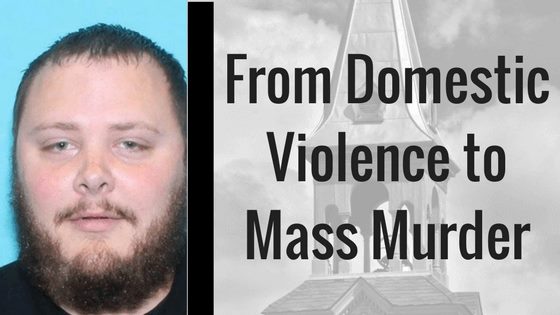|
Last Sunday, twenty-six innocent people lost their lives in yet another senseless mass shooting at a rural Texas church. As usual, national media interrupted their daytime coverage of whatever mess is going on elsewhere to focus the attention on this breaking news. As usual, pundits and anchors tried their very best under their incredibly limited 24/7 time restrictions to cover all the bases and interject usual outrage over yet another mass shooting. Then, coverage turned to usual inquiry. Why would anyone, in their right mind, senselessly murder a bunch of innocent churchgoers? As the questions came to pass, the answers followed shortly. After Sandy Hook, Aurora, San Bernardino, Charleston, Orlando, Las Vegas, and now Sutherland Springs in recent memory, it has become easier to justify mass shootings as the way things are. We express our sympathy and sorrow. We vent our outrage at these barbaric acts of carnage. We lower our American flags to half-mast, where they tragically end up staying in the midst of our tragedy-acclimated society. Then, we return to our daily lives. While it’s impossible to grieve forever, it’s important to respond in a way that shines light on the deeper issues society must address. At the end of the day, doing something to understand the causes of tragedy and prevent similar events from happening in the future shows due respect to the victims lost and for all humanity. An investigation of the Sutherland Springs shooting found that the killer, Devin Patrick Kelley, possessed a criminal record and should have never been permitted to purchase a gun. However, let’s put the gun issue aside for a moment and consider another important aspect to consider about the shooter: his history of perpetrating domestic violence. NPR reported shortly after the event that Kelley assaulted “his wife and their young child in 2012” as he served in the military. After being court-martialed for fracturing “his baby stepson’s skull” and assaulting his wife, Kelley received a “bad conduct discharge” (Dwyer, 2017) in 2014. It is important to note that even though mass shootings do not commonly occur, many mass shooters happen to be domestic batterers. One gun control advocacy group reports that “54 percent” (Everytown for Gun Safety, 2017) of mass shootings relate to domestic violence. Several mass shooters over recent years also had histories of family violence, like Adam Lanza at Sandy Hook, Omar Mateen at Orlando Pulse nightclub, and Stephen Paddock at Las Vegas. Nevertheless, media sources seldom publicize the link between mass killings and domestic violence, until now. Perhaps the domestic violence link is more salient now because of how the Sutherland Springs shooter’s primary motive stemmed from a domestic dispute with his mother-in-law. Other shootings that did not contain such an explicit link with domestic matters were often attributed to other factors like ISIS radicalization or mental illness. Nonetheless, domestic violence and mass murder contain similar roots and closer ties. Deborah Epstein of the Georgetown Domestic Violence Law Clinic described the phenomenon of mass shootings as a “circle of fear and intimidation” (Epstein, 2017), remarkably similar to the process domestic batterers use to control their intimate partners. Whether it comes to an intimate partner or people living throughout town, the abuser intends to invoke fear, a factor used to terrorize victims. As a society, we must take these threats seriously. Domestic violence has often been stereotyped as a feminist issue, but, in reality, the implications span further. First, domestic violence is a public safety issue. Though significant links can be drawn between mass shootings and intimate partner violence in a few select incidents, domestic violence also concurs with violent crime on a broader scale. A study conducted by the US Department of Justice found that “15%” (Truman et. al 2014) of all violent crime victimizations involved the intimate partner. In addition, domestic violence is a children’s issue. Every year, up to “10 million children” (Moylan et. al 2010) witness domestic violence at home. Unfortunately, many of these children inevitably grow up to become the abusers or the abused. This is how the cycle of violence is perpetuated. As children grow accustomed to relationship violence at home, many develop “PTSD… anxiety… [and] depression” (Garcia-Moreno & Pallitto, 2013), mental illnesses which lead to the continuation of domestic violence in their own relationships. At Hope Connection, we acknowledge that hurting people hurt people. This is not to justify their actions, but almost every single person who conduct such heinous acts of violence suffered through intense physical trauma as children. In response to tragedies like the Sutherland Springs shooting, we here at Hope Connection make it our mission to care for the children exposed to family violence. We believe in engaging with these children while they’re still young so that they will never grow up to become mass murderers and domestic batterers. That’s why we offer support groups like Care for the Vulnerable Child. Under this program for kids aged 5-12, we provide these children, who witnessed domestic violence or experienced abuse or abandonment, opportunities for emotional healing. That’s why we, here at Hope Connection, strive to carry out the next phase in our vision: opening up a long-term housing facility for victims of domestic violence. For more information about this new supportive, long-term housing project, please visit our information page: https://www.hope-connection.org/supportive-housing.html AuthorJustin Wahlers Comments are closed.
|
|
|
Get Our Newsletter! |


 RSS Feed
RSS Feed




